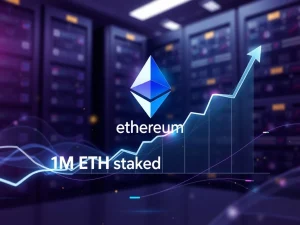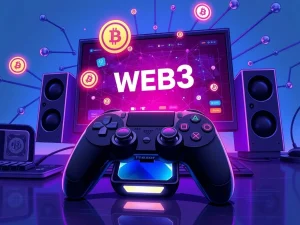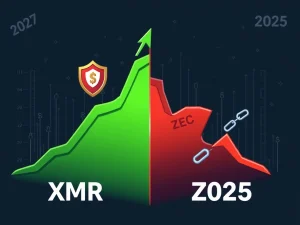Hyperliquid’s Pivotal $2M Reimbursement: A Game Changer for Decentralized Exchange Trust After API Outage

In the fast-paced world of cryptocurrency, where volatility and innovation go hand-in-hand, trust remains the ultimate currency. Recently, the decentralized exchange (DEX) Hyperliquid made headlines for an extraordinary move: a nearly $2 million reimbursement to users affected by a brief API outage. This decisive action has sent ripples through the crypto community, potentially setting a new standard for accountability in the decentralized finance (DeFi) space and significantly boosting confidence among crypto traders.
Understanding the Hyperliquid API Outage: What Happened?
Last week, Hyperliquid, a rapidly growing decentralized derivatives exchange, experienced a technical hiccup that briefly sidelined its users. On a Tuesday, the platform’s Application Programming Interface (API) suffered an outage, rendering traders unable to execute orders for approximately 37 minutes. While such incidents can cause significant anxiety and financial losses in the high-stakes environment of crypto trading, Hyperliquid’s swift and transparent response quickly turned potential disaster into a testament to its commitment to its user base.
An API outage means that the software interface allowing different applications to communicate effectively stopped working as intended. For traders, this translates to:
- Inability to Place Orders: Traders couldn’t open new positions or modify existing ones.
- Lack of Real-time Data: Access to up-to-the-minute price feeds and market data was disrupted.
- Execution Delays: Even if orders were submitted, their processing was significantly hampered.
- Potential for Liquidation: In volatile markets, even short outages can lead to forced liquidations if traders cannot manage their positions.
Initial concerns over a potential hack or exploit quickly dissipated as Hyperliquid clarified the cause: a massive surge in traffic. The platform had just hit a record $14.7 billion in total open interest on July 23, and the subsequent traffic spike overwhelmed its API servers. This explanation, coupled with their proactive measures, helped calm fears and reinforced their dedication to maintaining a robust trading environment.
The Unprecedented Reimbursement: Building Trust with Crypto Traders
On Monday, just days after the incident, Hyperliquid issued refunds totaling an impressive $1.99 million in USDC to affected users. This move was not a legal obligation; unlike traditional financial institutions or centralized exchanges (CEXs), many decentralized exchange platforms operate without formal service level agreements (SLAs) that mandate such compensation. This is where Hyperliquid’s action truly stands out.
The crypto community was quick to laud Hyperliquid’s integrity. As one Hyperliquid trader, ‘aaalex,’ remarked on X (formerly Twitter), “Incredible considering they have no legal obligation, no contract or SLA to do this.” This sentiment was widely echoed, highlighting how Hyperliquid’s proactive approach could significantly bolster confidence in the decentralized trading ecosystem. By taking responsibility and compensating users for an issue that was technical rather than malicious, Hyperliquid demonstrated a level of accountability often sought but rarely found in the nascent DeFi space.
Key aspects of the reimbursement process included:
- Automated Refunds: The majority of affected users received their refunds automatically.
- KYC for Larger Amounts: Users owed over $10,000 were required to complete Know Your Customer (KYC) verification for the full refund, receiving $9,999 initially and the remainder upon verification via a Discord ticket by August 18. This step, while adding a layer of centralization, is a common practice for larger payouts to comply with regulatory standards and prevent illicit activity.
- Transparency: On-chain data from Hypurrscan confirmed the transactions, providing verifiable proof of the repayments.
This commitment to transparency and user welfare distinguishes Hyperliquid and potentially sets a new precedent for how decentralized platforms handle unforeseen technical challenges. It sends a strong message that even in a ‘trustless’ system, trust can be actively built through responsible actions.
Decentralized Exchanges vs. Centralized Platforms: A Shifting Landscape
Hyperliquid’s handling of this incident comes at a crucial time for the crypto industry, as decentralized exchanges continue to gain market share and competitiveness against their centralized counterparts. While CEXs have historically dominated due to their user-friendliness, high liquidity, and robust infrastructure, DEXs offer distinct advantages:
- Custody: Users retain full control of their funds on DEXs, mitigating counterparty risk.
- Censorship Resistance: DEXs are less susceptible to government censorship or shutdowns.
- Transparency: Transactions are recorded on public blockchains, offering a high degree of transparency.
- Privacy: Many DEXs allow trading without extensive KYC, though this is evolving.
However, DEXs also face challenges, including liquidity fragmentation, higher transaction fees (gas fees), and often a steeper learning curve for new crypto traders. The recent Hyperliquid incident, and its positive resolution, serves as a powerful case study for how DEXs can overcome perceived weaknesses and build user confidence.
Consider the market dynamics:
| Feature | Centralized Exchanges (CEXs) | Decentralized Exchanges (DEXs) |
|---|---|---|
| Fund Custody | Exchange holds funds (custodial) | User holds funds (non-custodial) |
| KYC/AML | Mandatory for most operations | Often optional, but increasing for large transactions |
| Security Risk | Hacks of exchange servers, single point of failure | Smart contract vulnerabilities, user error |
| Transaction Speed | Very fast (off-chain matching) | Depends on blockchain speed (on-chain settlement) |
| Liquidity | Typically higher | Varies, improving rapidly |
| Regulatory Scrutiny | High | Increasing, but more complex to regulate |
Hyperliquid’s actions demonstrate that even when an API outage occurs, a DEX can respond with the same, if not greater, level of responsibility as a CEX, thereby bridging a critical gap in trust and service delivery. This proactive stance is crucial for DEXs to truly compete and potentially surpass centralized platforms in the long run.
Hyperliquid’s Ascendancy: Growth and Resilience
Despite the recent API outage and a previous $6.26 million exploit in March involving the Jelly memecoin (due to a vulnerability in liquidation parameters), Hyperliquid has shown remarkable resilience and growth. CoinGecko data reveals its impressive trajectory: it has ascended to become the seventh-largest derivatives exchange globally, boasting over $10.6 billion in 24-hour open interest. This is a significant leap from its 12th position at the beginning of April.
This growth underscores the platform’s underlying strengths, which likely include:
- Innovative Trading Features: Hyperliquid offers advanced perpetuals trading, often with high leverage options, appealing to sophisticated crypto traders.
- Competitive Fee Structure: Attractive trading fees compared to some competitors.
- Strong Community Support: An engaged user base that provides feedback and advocacy.
- Rapid Development Cycle: Continuous improvements and quick responses to issues.
The fact that the platform has not only recovered but thrived after an exploit and now an outage, reinforces its robust architecture and responsive team. The $2 million reimbursement following the recent incident further solidifies its reputation as a user-centric platform committed to maintaining its growth trajectory by fostering trust.
Navigating Reimbursement: KYC and the User Experience
While the overall response to the reimbursement was overwhelmingly positive, the requirement for Know Your Customer (KYC) verification for refunds exceeding $10,000 sparked some discussion. In the realm of decentralized exchanges, the promise of pseudonymity and reduced data collection is a significant draw for many users. However, for larger financial transactions, regulatory compliance often necessitates some form of identity verification, even for decentralized entities seeking to operate within legal frameworks.
Hyperliquid’s approach involved:
- Partial Payout: Affected users received $9,999 of their refund automatically.
- Discord Ticket Process: For the remaining funds above $10,000, users needed to complete KYC via a Discord ticket by August 18.
This balanced approach aims to provide immediate relief to most users while ensuring compliance for substantial payouts. It reflects the ongoing tension and evolution in the DeFi space: how to balance the core tenets of decentralization and privacy with the increasing demands for regulatory adherence, especially as platforms scale and handle larger volumes of capital. For crypto traders who value privacy, this might be a minor inconvenience, but for the platform’s long-term sustainability and legitimacy, it’s a pragmatic step.
Broader Implications for Decentralized Trading Platforms
The Hyperliquid reimbursement saga offers several crucial takeaways for the broader DeFi ecosystem and the future of decentralized exchanges:
- Setting a New Standard for Accountability: Hyperliquid’s voluntary compensation sets a powerful precedent. It demonstrates that even without legal obligation, a commitment to user welfare can be a core value, fostering deeper trust and loyalty. This could pressure other DEXs to adopt similar practices.
- Boosting Confidence in DeFi: Incidents like outages or exploits can erode trust. Hyperliquid’s rapid and generous response helps to counteract negative perceptions, showing that DeFi platforms can be resilient and responsible, even in the face of technical difficulties. This is vital for attracting mainstream adoption.
- The Evolving Definition of ‘Decentralization’: The KYC requirement for large refunds highlights the ongoing evolution of decentralization. Pure decentralization often clashes with real-world regulatory demands. Platforms like Hyperliquid are navigating this complex landscape, finding pragmatic solutions that balance core principles with operational realities.
- Importance of Robust Infrastructure: The outage, though not an exploit, underscores the critical need for DEXs to invest heavily in scalable and robust infrastructure to handle exponential growth and traffic spikes. Preventing an API outage is always better than compensating for it.
- User Experience as a Differentiator: Beyond just technology, user experience, including transparent communication and effective incident response, is becoming a key differentiator in the competitive DEX market.
Actionable Insights for Crypto Traders
For individual crypto traders, the Hyperliquid event provides valuable lessons:
- Diversify Your Platforms: Relying on a single exchange, whether CEX or DEX, carries inherent risks. Spreading your capital across multiple reputable platforms can mitigate the impact of an API outage or other unforeseen issues.
- Understand Platform Policies: While Hyperliquid’s reimbursement was voluntary, it’s wise to research a platform’s past responses to incidents. Does it prioritize user compensation? How transparent is its communication during crises?
- Stay Informed: Follow official channels (Telegram, X, Discord) of the platforms you use. Hyperliquid’s immediate communication helped manage expectations and provide updates during the outage.
- Risk Management: Always employ robust risk management strategies. Don’t over-leverage, and have contingency plans for unexpected market movements or platform disruptions.
- Consider KYC Implications: Be aware of potential KYC requirements for larger transactions or refunds, even on seemingly ‘decentralized’ platforms.
Conclusion: Hyperliquid’s Bold Move Shapes DeFi’s Future
The Hyperliquid reimbursement of nearly $2 million after a brief API outage is more than just a generous gesture; it’s a significant moment for the entire decentralized finance ecosystem. By taking swift, transparent, and financially responsible action, Hyperliquid has demonstrated a new level of accountability that can profoundly impact user confidence in decentralized exchange platforms. This move not only solidifies Hyperliquid’s position as a leader but also challenges other platforms to elevate their standards of service and trust.
As crypto traders increasingly look towards decentralized alternatives, incidents like this, handled with such integrity, will be pivotal in accelerating the shift from centralized to decentralized finance. Hyperliquid has not just recovered from a technical glitch; it has transformed it into an opportunity to build stronger bridges of trust in a landscape defined by innovation and constant evolution.









